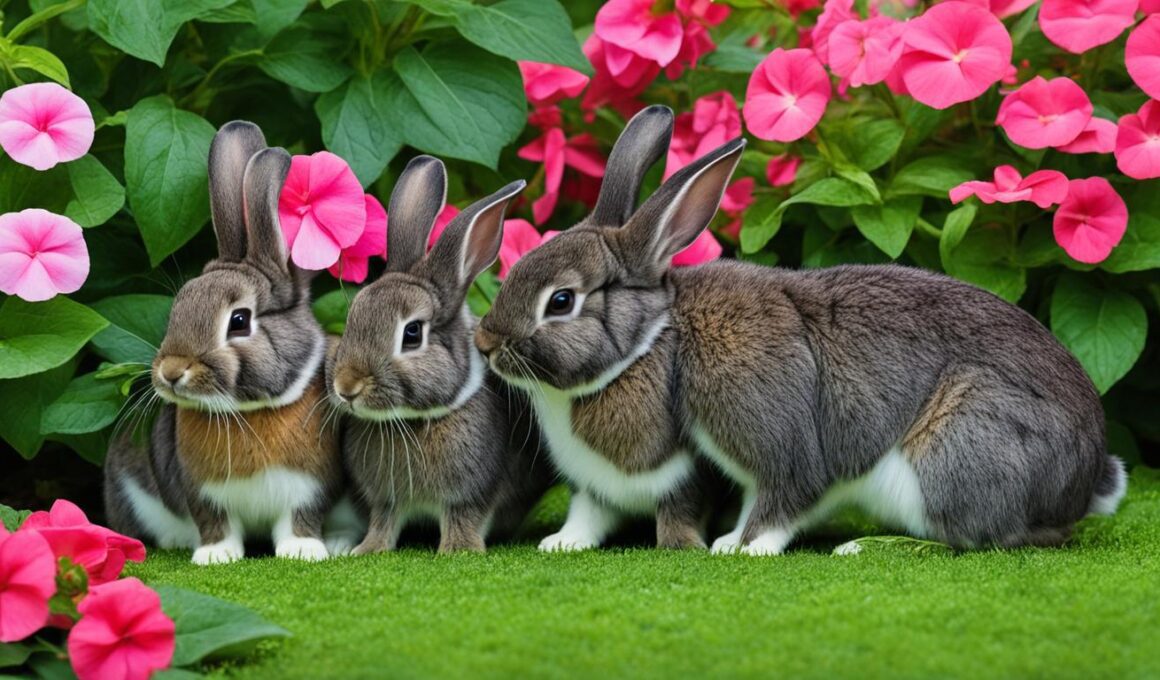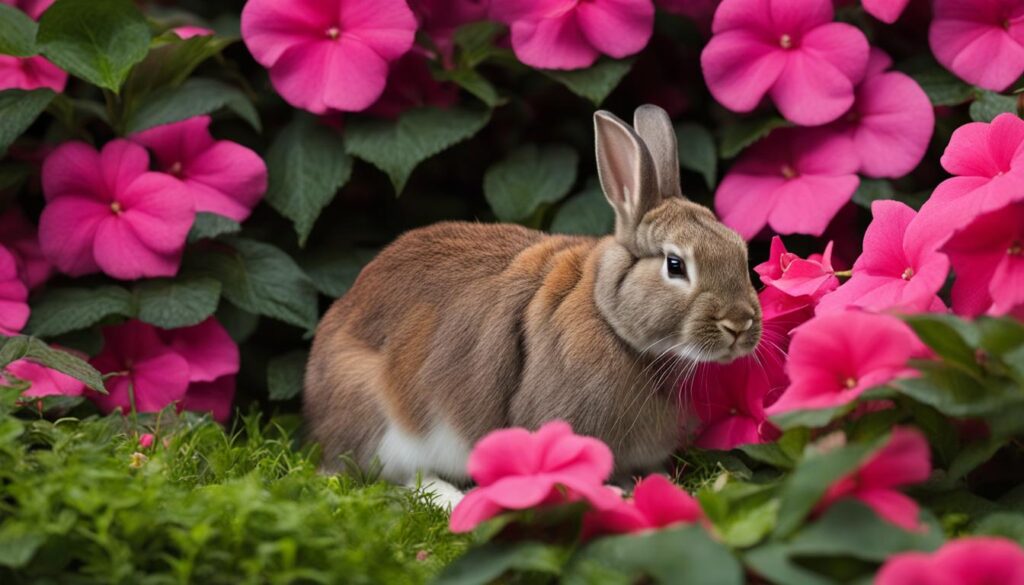Are you wondering if rabbits have a taste for impatiens? Let’s dive into the world of rabbits, impatiens, and plant safety to find out more.
Rabbits are known for their herbivorous diets, munching on a variety of plants. However, when it comes to impatiens, there seems to be some debate. While impatiens are generally considered to be deer and rabbit resistant, there have been instances where rabbits have nibbled on them.
The mild-tasting flowers of impatiens may be consumed by rabbits when there are no other attractive options available. However, it’s worth noting that impatiens are often planted as an alternative to more rabbit- and deer-attractive flowers. Some experts suggest that impatiens may have a bitter taste that deters rabbits, but it’s generally recommended to avoid adding impatiens to their feeding list.
It’s important to remember that there are many safe plants for rabbits, so it’s wise to explore other options in your garden. While certain plants can cause adverse reactions, a small nibble from a toxic plant is unlikely to be fatal. Rabbits tend to avoid wild plants that are toxic to them, so it’s best to follow their instincts when it comes to plant safety.
In the next sections, we’ll delve deeper into rabbit behavior, impatiens consumption, and ways to protect your impatiens from these adorable yet destructive creatures. Stay tuned for more gardening insights!
Rabbit Behavior and Impatiens Consumption
Rabbits are known for their behavior when it comes to consuming plants. When rabbits eat impatiens, they tend to sever the stems at an angle, leaving a distinct cut. This behavior is often seen in rabbit bites, as opposed to the blunt ends left by deer bites.
Although impatiens are generally considered to be “rabbit-resistant,” there have been cases where rabbits have fed on these delicate flowers. It’s important to take measures to protect your impatiens from rabbit damage.
- To create a physical barrier, it’s recommended to install a three-foot wire mesh fence around the plants. Ensure that the bottom of the fence is buried into the ground to prevent rabbits from digging underneath.
- In addition to a fence, you can also use hot pepper spray as a deterrent. Apply the spray to the leaves and flowers of the impatiens to discourage rabbits from coming back. The spicy scent and taste are often off-putting to rabbits.
- If you prefer a natural solution, consider sprinkling dried blood around the impatiens. The smell of dried blood is typically unpleasant to rabbits and can help keep them away from your plants.
- Motion-detectors that create sound can provide another layer of protection. Set up these devices near your impatiens to scare away any rabbits that come near. The sudden noise will make them think twice about approaching the plants.
To further deter rabbits, consider planting rabbit-resistant flowers alongside your impatiens. Flowers such as forget-me-nots, asters, vinca, and rosemary are known to repel rabbits.
By understanding rabbit behavior and implementing these protective measures, you can enjoy the beauty of your impatiens without worrying about rabbit damage. With the right strategies in place, you can create a rabbit-resistant environment for your plants.
Ensuring Plant Safety and Preventing Rabbit Damage
To protect your impatiens from rabbit damage, there are several steps you can take to ensure plant safety and deter these curious creatures. One effective method is to apply a hot pepper spray specifically formulated for rabbits. This spray creates a burning sensation in their mouths, making them less likely to return to your impatiens.
Another natural deterrent is to sprinkle dried blood around the plants. Not only does the odor repel rabbits, but it also provides beneficial nutrients for the impatiens when it gradually melts into the soil.
In addition to these deterrents, installing a fence around the impatiens area is highly recommended. Choose a wire mesh fence with small openings (1 inch or smaller) and push it 3 to 6 inches into the ground. Make sure the fence completely encloses the impatiens, preventing rabbits from accessing them. For added security, bend the bottom of the fence outward at a 90-degree angle and bury the fold several inches below the surface to deter rabbits from digging underneath.
Lastly, it’s important to remove any thick brush or other vegetation near your garden, as these provide hiding spots for rabbits. By clearing the area, you eliminate potential rabbit habitats and reduce the likelihood of them targeting your impatiens.
Can Rabbits Eat Impatiens If They Eat Dahlias?
Yes, rabbits can eat impatiens if they eat dahlias. However, both impatiens and dahlias are toxic to rabbits and can cause severe digestive issues or even death. It’s important to avoid letting rabbits and dahlias eating together to keep them safe and healthy.










